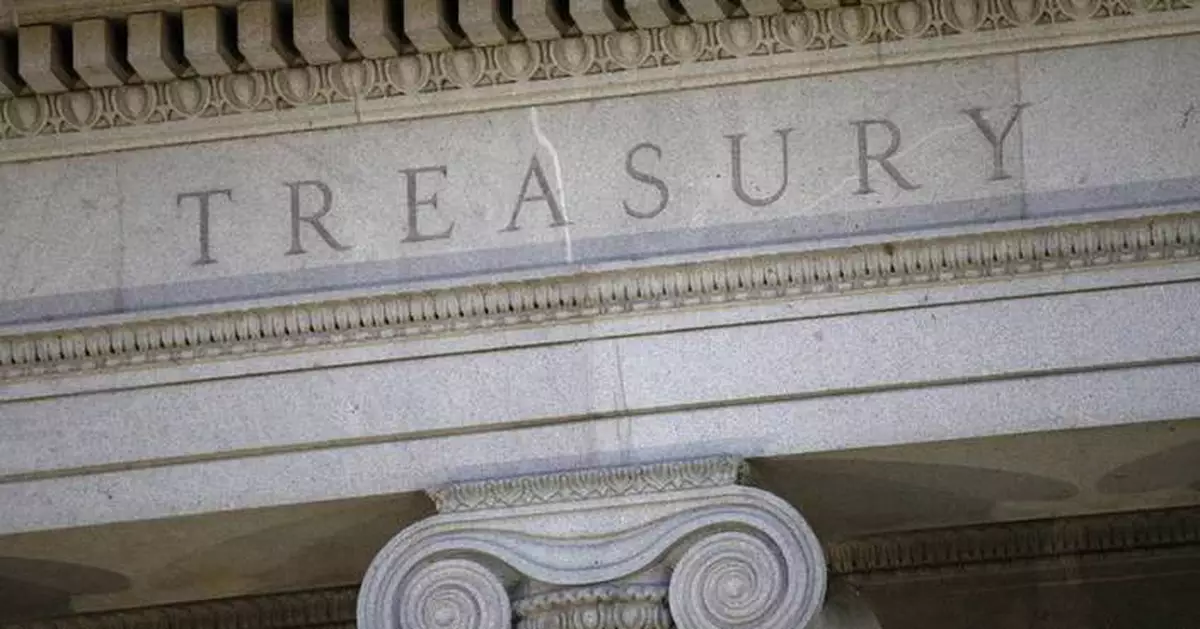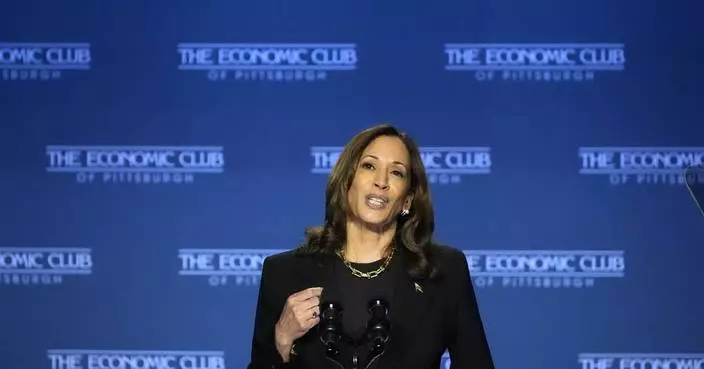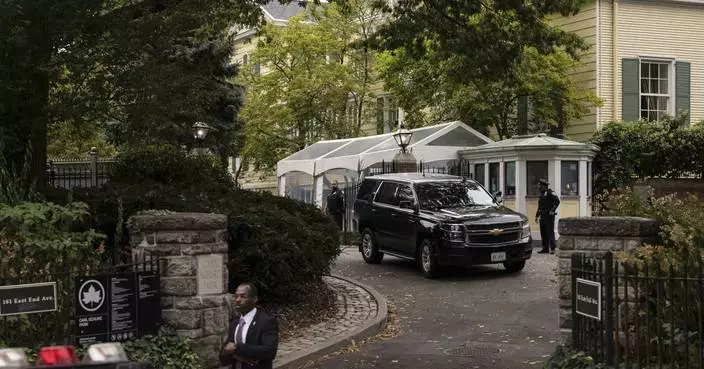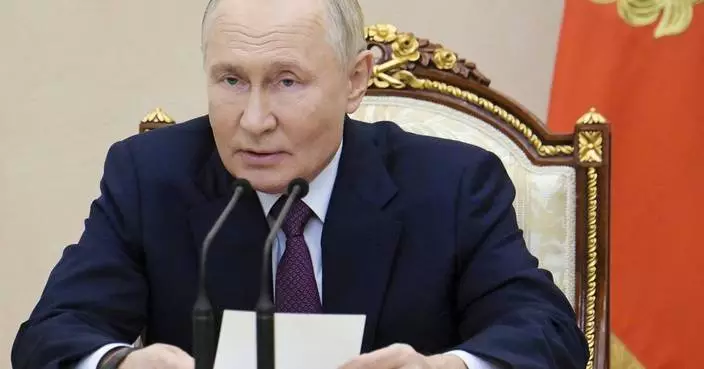WASHINGTON (AP) — A network of people and virtual currency exchanges associated with harboring Russian cybercrime were hit with sanctions on Thursday, in a government-wide crackdown on cybercrime that could assist Russia ahead of President Joe Biden's meeting with Ukrainian President Volodymyr Zelenskyy.
U.S. Treasury sanctioned alleged Russian hacker Sergey Ivanov and Cryptex — a St. Vincent and Grenadines registered virtual currency exchange operating in Russia. Virtual currency exchanges allow people and businesses to trade cryptocurrencies for other assets, such as conventional dollars or other digital currencies.
Treasury alleges that Ivanov has laundered hundreds of millions of dollars worth of virtual currency for cyber criminals and darknet marketplace vendors for the last 20 years, including for Timur Shakhmametov, who allegedly created an online marketplace for stolen credit card data and compromised IDs called Joker’s Stash. Ivanov laundered the proceeds from Joker’s Stash, Treasury says.
The State Department is offering a $10 million reward for information that would lead to the arrest and possible conviction of the two men and the U.S. Attorney’s Office in Virginia has unsealed an indictment against them.
Biden said in a statement announcing the sanctions Thursday that the U.S. “will continue to raise the costs on Russia for its war in Ukraine and to deprive the Russian defense industrial base of resources.”
He meets with Zelenskyy Thursday to announce a surge in security assistance for Ukraine and other actions meant to assist the war-torn country as Russia continues to invade.
State Department Spokesman Matthew Miller said, “We will continue to use all our tools and authorities to deter and expose these money laundering networks and impose cost on the cyber criminals and support networks. We reiterate our call that Russia must take concrete steps to prevent cyber criminals from freely operating in its jurisdiction.”
U.S officials have taken several actions against Russian cybercriminals since the start of the invasion in February 2022.
Earlier this year, Treasury’s Office of Foreign Assets Control sanctioned 13 firms — five of which are owned by an already sanctioned person — and two people who have all either helped build or operate blockchain-based services for, or enabled virtual currency payments in, the Russian financial sector, “thus enabling potential sanctions evasion,” according to U.S. Treasury.
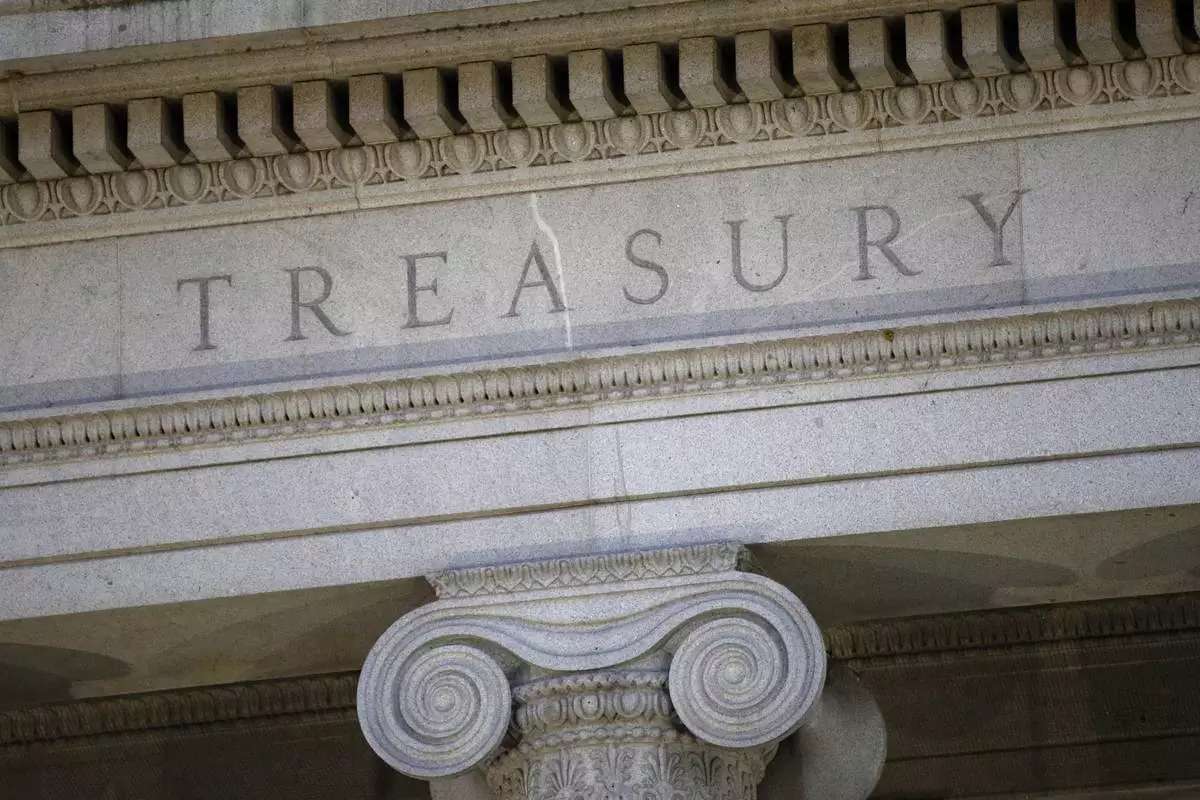
FILE- This photo shows the U.S. Treasury Department building at dusk in Washington, June 6, 2019. (AP Photo/Patrick Semansky, File)
OpenAI's history as a nonprofit research institute that also sells commercial products like ChatGPT may be coming to an end as the San Francisco company looks to more fully convert itself into a for-profit corporation accountable to shareholders.
The company’s board is considering a decision that would change the company into a public benefit corporation, according to a source familiar with the discussions who wasn’t authorized to speak publicly about them.
While OpenAI already has a for-profit division, where most of its staff works, it is controlled by a nonprofit board of directors whose mission is to help humanity. That would change if the company converts the core of its structure to a public benefit corporation, which is a type of corporate entity that is supposed to help society as well as turn a profit.
No final decision has been made by the board and the timing of the shift hasn’t been determined, the source said.
OpenAI’s CEO Sam Altman acknowledged in public remarks Thursday that the company is thinking about restructuring but said the departures of key executives the day before weren’t related.
Speaking at a tech conference in Italy, Sam Altman mentioned that OpenAI has been considering an overhaul to get to the "next stage." But he said it was not connected to the Wednesday resignations of Chief Technology Officer Mira Murati and two other top leaders.
“OpenAI will be stronger for it as we are for all of our transitions,” Altman told the Italian Tech Week event in Turin. “I saw some stuff that this was, like, related to a restructure. That’s totally not true. Most of the stuff I saw was also just totally wrong,” he said without any more specificity.
“But we have been thinking about (a restructuring),” he added. OpenAI's board has been considering a revamp for a year as it tries to figure out what's needed to “get to our next stage."
OpenAI said Thursday that it will still retain a nonprofit arm.
“We remain focused on building AI that benefits everyone and as we’ve previously shared we’re working with our board to ensure that we’re best positioned to succeed in our mission,” it said in a written statement. “The nonprofit is core to our mission and will continue to exist.”
The resignations of Murati, Chief Research Officer Bob McGrew and another research leader, Barret Zoph, were “just about people being ready for new chapters of their lives and a new generation of leadership,” Altman said.
The exits were the latest in a string of recent high-profile departures that also include the resignations of OpenAI co-founder Ilya Sutskever and safety team leader Jan Leike in May. In a statement, Leike had leveled criticism at OpenAI for letting safety “take a backseat to shiny products.”
Much of the conflict at OpenAI has been rooted in its unusual governance structure. Founded in 2015 as a nonprofit with a mission to safely build futuristic AI to help humanity, it is now a fast-growing big business still controlled by a nonprofit board bound to its original mission.
This unique structure made it possible for four OpenAI board members — Sutskever, two outside tech entrepreneurs and an academic — to briefly oust Altman last November in what was later described as a dispute over a “significant breakdown in trust” between the board and top executives. But with help from a powerful backer, Microsoft, Altman was brought back to the CEO role days later and a new board replaced the old one. OpenAI also put Altman back on the board of directors in May.
——
The Associated Press and OpenAI have a licensing and technology agreement that allows OpenAI access to part of AP’s text archives.
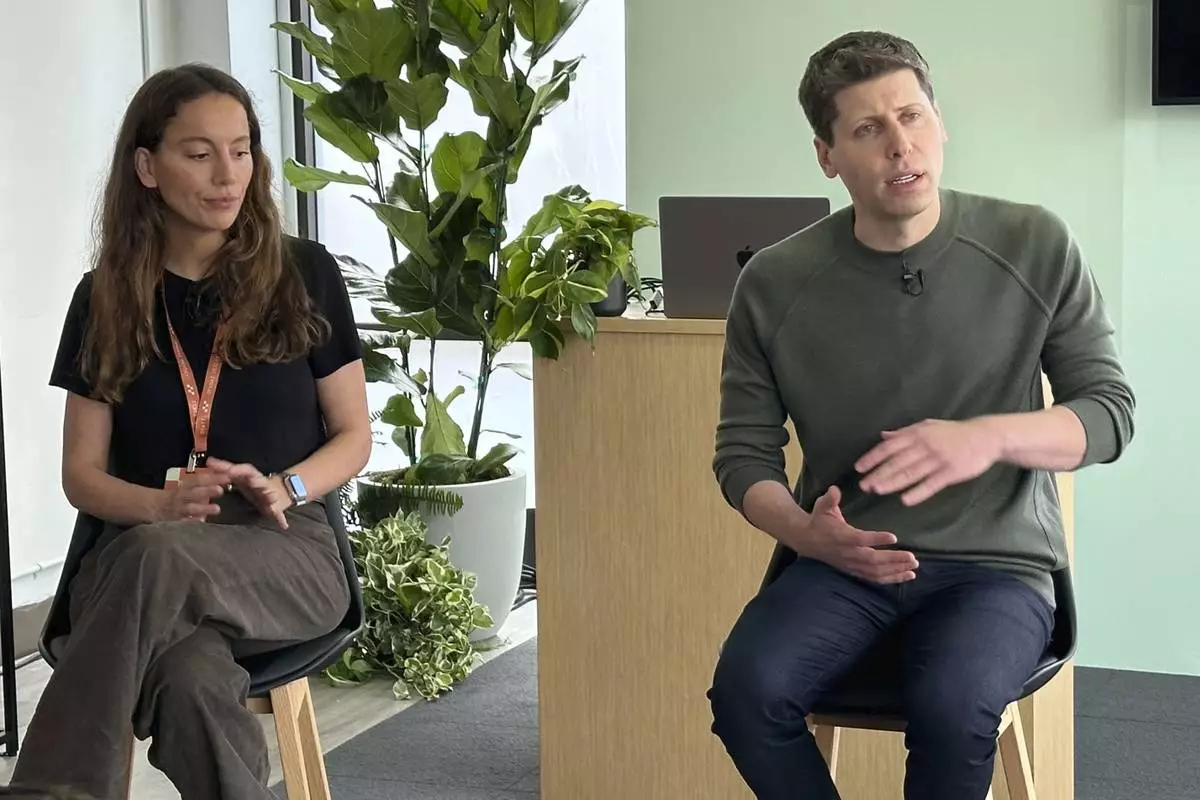
FILE - Sam Altman, right, CEO of ChatGPT maker OpenAI, and Mira Murati, chief technology officer, appear at OpenAI DevDay, OpenAI's first developer conference, on Nov. 6, 2023 in San Francisco. (AP Photo/Barbara Ortutay, File)
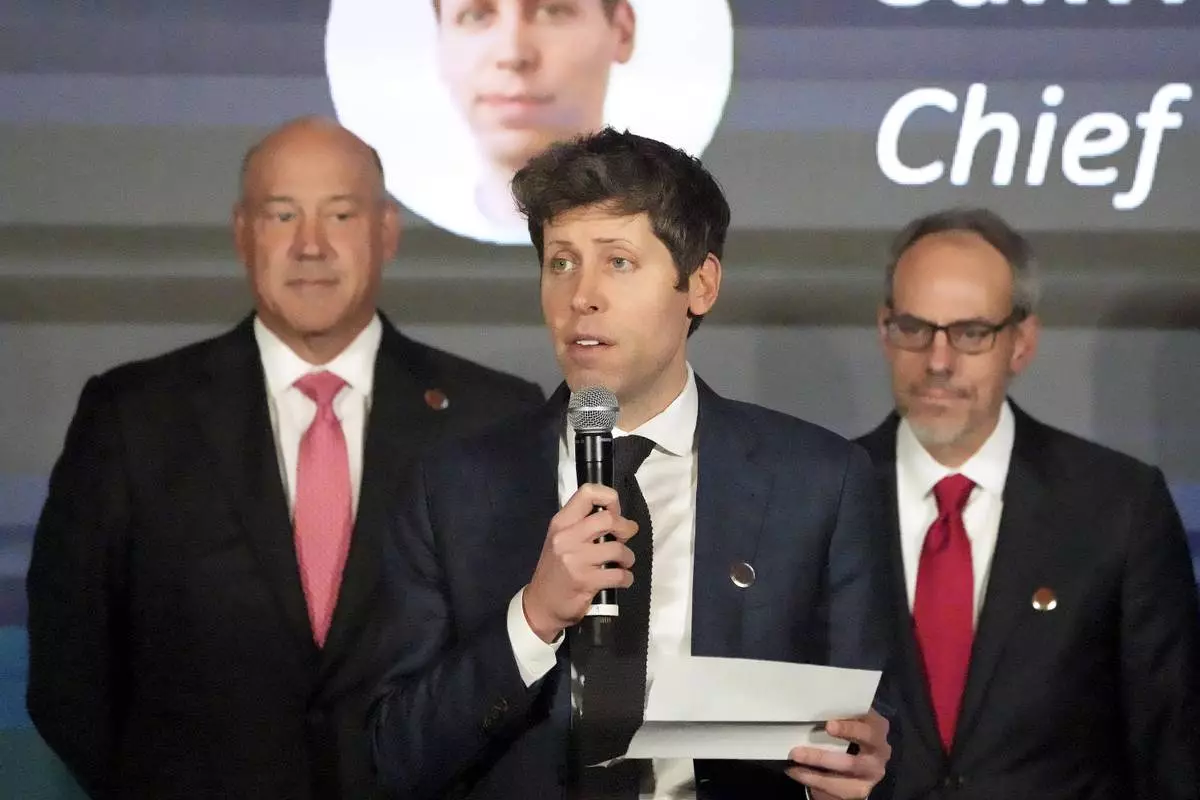
FILE - Open AI Chief Executive Officer Sam Altman (C) speaks at the Advancing Sustainable Development through Safe, Secure, and Trustworthy AI event on Sept. 23, 2024, in New York. (Bryan R. Smith/Pool Photo via AP)



